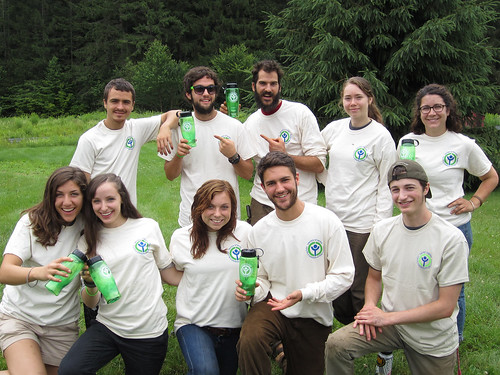
As a young man, Tom Tidwell had a summer job with the Forest Service as a member of a Youth Conservation Corps crew. Today, he is Chief of the Forest Service, overseeing an agency of forty thousand employees that honors a mission to sustain the health, diversity, and productivity of the nation’s forests and grasslands to meet the needs of present and future generations.
Chief Tidwell’s story is not entirely unique. There are other leaders in the Forest Service who were introduced to the agency through Youth Conservation Corps, including National Forest System Deputy Chief Leslie Weldon and a host of other Forest Service employees.
Youth Conservation Corps creates jobs for United States citizens, ages 15 to 18, across the nation, in national forests, national parks, wildlife refuges and other public lands. It equips young people with skills for a new career, while awakening a love for America’s Great Outdoors in them. They work outdoors, learn about conservation stewardship, get trained in restoration skills necessary for field work, and develop a work ethic and interpersonal communication skills. Throughout their paid work experience, participants are supervised by – and gain valuable guidance from – the staff of the Forest Service and recognized partners.
This year, the Forest Service is pleased to launch its Residential YCC programs, which provide housing at select Youth Conservation Corps locations. Young men and women can apply online or by mailing in an application. With more than 80 percent of our country’s population living in urban areas, this new housing element seeks to reach that very population by expanding opportunities for our nation’s young people to relocate for work away from home.
Why should teens spend their summer on a Youth Conservation Corps crew? If you happen to meet Ben, age 18, and a member of the summer 2014 crew on the George Washington and Jefferson National Forests in Virginia, you’d get several good reasons. He spent the summer working 10-hour shifts, four days a week, gaining specialized construction skills he may not have obtained otherwise. He learned how to navigate in a team with other youth and Forest Service staff, staying on his feet aware of the Forest Service culture of emphasizing safety. Ben’s experience helped him realize he wanted to explore a more permanent career with the Forest Service.
Perhaps Ben will follow the path many agency leaders took, including some of its most senior leaders like Chief Tidwell and Deputy Chief Weldon. Hopefully there will be more stories like Ben and Chief Tidwell’s stories in the future, with this year’s emphasis on expanding Youth Conservation Corps opportunities to underrepresented youth. U.S. youth are encouraged to engage with the Forest Service to help ignite a newly engaged workforce of young people looking to make a difference in the world.

